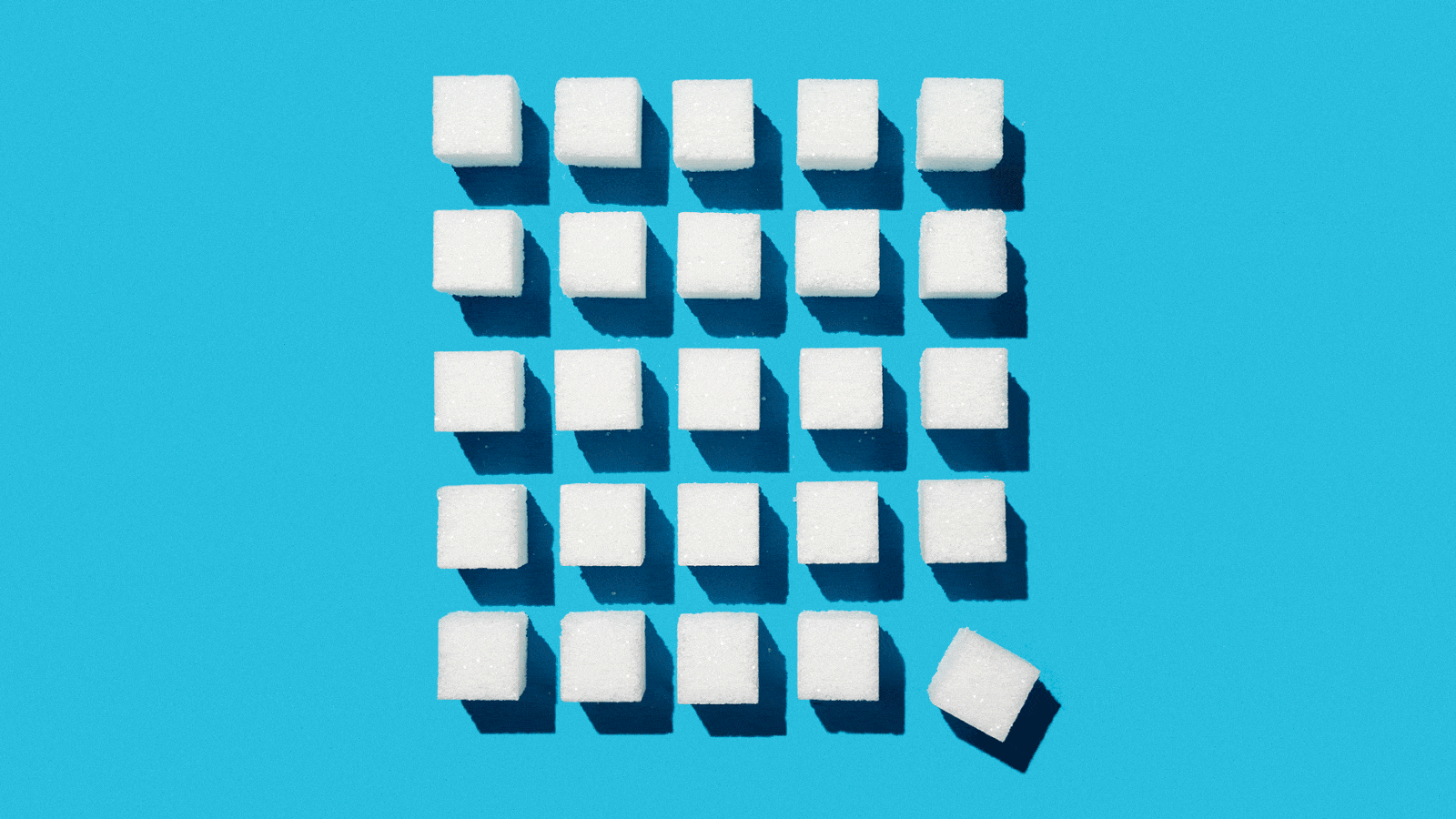An Actually Realistic Plan for Cutting Down on Sugar
And some guidance on how far to go.

For anyone who's attempted, for whatever reason, to reduce her added sugar intake, you will understand that it takes more than good intentions and "NO MORE COOKIES, LOSER" scribbled on your hand in Sharpie in order for it to loosen its vehement, coke-like grip on your weak animal brain. It's...just...too...strong.
But it's also essential that you keep struggling, especially in light of yet more proof that sugar wreaks havoc on your health.
Here, we've enlisted two experts—Despina Hyde Gandhi, registered dietitian for NYU Langone Weight Management Program, and Keri Gans, RDN and author of The Small Change Diet—to lead you from temptation in a realistic, non-cold-turkey-no-churros-ever-again way.
A post shared by Overheard LA (@overheardla)
A photo posted by on
(For some levity; does not apply to you.)
The Game Plan
You've heard this before, but it is true, and lots of otherwise-smart, early-death-avoiding people still forget it, so once more for the ones in the back: Total elimination of sugar is not viable. Both Gans and Gandhi agree that the proper approach is gradual—think of Shawshank's Andy Dufresne tunneling out over the course of 19 years versus just dynamiting himself out of prison in one go. The exact timeline depends on how much added sugar you're consuming over the recommended allowance (no more than 24 grams or 6 teaspoons a day for women, according to the American Heart Association) but anybody can begin with the food swaps outlined below, assigning yourself one a week and adding more going forth.
The Game Itself
The rules are simple: Target your personal weak points, whether that be ice cream or booze, and trade them for lower-in-sugar alternatives so you don't feel deprived. Think loads of fresh fruit, full-fat dairy products (Gans likes Siggi's), salsa instead of ketchup, homemade salad dressings rather than bottled, and sparkling water instead of soda. And no mega choco-mocha-vanilla-cinnamon-roll lattes with 16 pumps of hazelnut, like this guy.
#Starbucksnews - #4BillLewis breaks #Starbucks drink record http://t.co/b8JdhxdqWQ #Florida #FortLauderdale #Miami pic.twitter.com/NFZ6k6RH75October 30, 2014
How to Win
Gandhi says you'll start to notice the benefits of lowering your sugar intake as soon as a week in, namely in that you'll no longer experience that WOOHOO rush, then inevitable crash. You'll have more energy. Your mood might even out. Your skin could become brighter and clearer. You might even lose some weight. But maybe the greatest victory of all is repairing your complicated relationship with the sweet stuff, as described below.
Get exclusive access to fashion and beauty trends, hot-off-the-press celebrity news, and more.
How to Lose
The quick answer: going to such an extreme that you no longer take joy in eating. There might not be any health consequences related to under-doing it with sugar, as there would be with, say, carbs, but there might be an emotional or mental cost. "My approach is where you don't feel guilt," Gans says. "If you eat something and you beat yourself up over it, then that's not too pleasurable, is it? If you restrict and wind up having no social life, what good is that?" So unless you and your healthcare provider go so far as to determine that being in the presence of *any* dessert at all as too triggering, know that it's perfectly fine (and healthy) to split a slice of crepe cake with the table. As Gans said one of her colleagues recently put it, "It's better to share a pie with friends than eat a salad alone."
Follow Marie Claire on Facebook for the latest celeb news, beauty tips, fascinating reads, livestream video, and more.
Chelsea Peng is a writer and editor who was formerly the assistant editor at Marie Claire. She's also worked for The Strategist and Refinery29, and is a graduate of Northwestern University. On her tombstone, she would like a GIF of herself that's better than the one that already exists on the Internet and a free fro-yo machine. Besides frozen dairy products, she's into pirates, carbs, Balzac, and snacking so hard she has to go lie down.